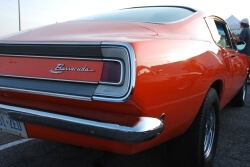2 min read
An Inconvenient About Face on Ethanol in Gasoline by Al Gore
The aftermath of the EPA’s decision to approve E15 (15% ethanol) use in 2007 and later vehicles has settled. Industry and trade groups are lining up...

An unusual story recently surfaced, as reported by WCSH news of Portland, Oregon, where the owner of a recently purchased VW Jetta diesel car found the vehicle sidelined with ALGAE growing in the fuel tank and fuel system. No, the car didn’t come that way so it’s not the fault of VW or the dealership. The mechanic who inspected the car said this sort of thing typically happens with vehicles that are left sitting for a while: an accumulation of WATER IN FUEL. However, it’s not clear that the unfortunate lady left the car unused for an appreciable amount of time. And to make matters worse, she got a bill for $10,500 to clean the car out and fix the problem.
 This type of situation seems pretty unusual but shows that anything can happen. The most likely cause of her ills was some fuel from her station that was already infected with algae or bacteria or some kind of microbes. Mechanics often use the terms interchangeably, but really, it’s rare for algae to grow in a fuel storage tank because algae need light to grow, whereas bacteria and fungi do not.
This type of situation seems pretty unusual but shows that anything can happen. The most likely cause of her ills was some fuel from her station that was already infected with algae or bacteria or some kind of microbes. Mechanics often use the terms interchangeably, but really, it’s rare for algae to grow in a fuel storage tank because algae need light to grow, whereas bacteria and fungi do not.
The mechanic cited in the report talked about preventing these kinds of problems by using a fuel additive that will remove water from the fuel tank. On that point, he is absolutely right. Fuel treatments like Dee-Zol (for diesel fuel) and Mix-I-Go (for gasoline and ethanol) control water build-up (alongside their cleaning and mileage improving benefits) which might have prevented or lessened her problem. If the fuel station had used a biocide like Bellicide, they might also have killed the microbes and prevented the $10,500 problem instead of passing it along to her.
It is interesting to note that the VW dealership told the driver not to use any additive. This is typical among car dealerships and companies, who do not wish to commit to “approving” the use of any aftermarket product. If they did approve a particular additive, they would be swamped with hundreds of me-too inquiries by good and not-so-good manufacturers of all manner of products. So it is not surprising at all the stance that the dealership took with her.
2 min read
The aftermath of the EPA’s decision to approve E15 (15% ethanol) use in 2007 and later vehicles has settled. Industry and trade groups are lining up...
As the country's climate changes, we're seeing more and more severe winter weather events. As of this month, August, across much of the nation, the...

Dads love cars. Well, not all of them but most of them. It’s just one of those things about being an American male – they love machines, gadgets,...